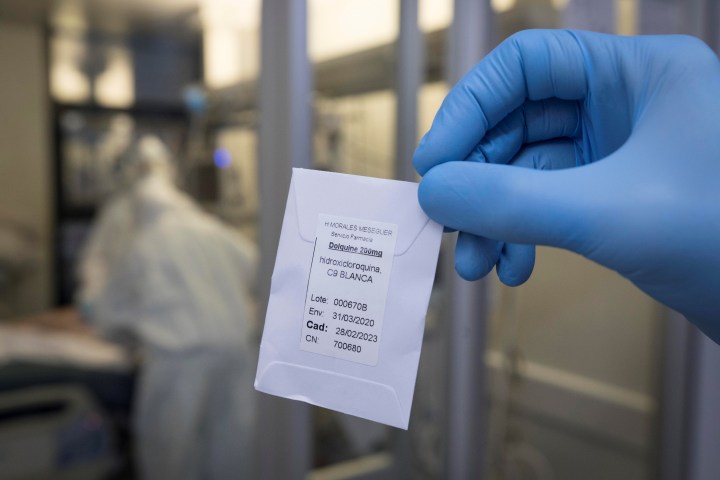COVID-19
EU governments ban malaria drug for COVID-19, trial paused as safety fears grow

PARIS/LONDON/MILAN, May 27 (Reuters) - European governments moved on Wednesday to halt the use of anti-malaria drug hydroxychloroquine to treat COVID-19 patients, and a second global trial was suspended, further blows to hopes for a treatment promoted by U.S. President Donald Trump.
The moves by France, Italy and Belgium followed a World Health Organization decision on Monday to pause a large trial of hydroxychloroquine due to safety concerns.
A UK regulator said on Wednesday that a separate trial was also being put on hold, less than a week after it started. The study, being led by the University of Oxford and partly funded by the Bill and Melinda Gates Foundation, was expected to involve as many as 40,000 healthcare workers.
“All hydroxychloroquine trials in COVID-19 remain under close review” while investigators assess any further risks, the Medicines and Healthcare products Regulatory Agency (MHRA) said in an email to Reuters.
The swift moves by authorities in countries hit hardest by the pandemic highlighted the challenge for governments scrambling to find ways to treat patients and control the novel coronavirus.
After early reports that it might help some patients, regulators in several countries had allowed hydroxychloroquine to be used as a potential COVID-19 treatment.
Trump was a particularly strong supporter, describing the drug as a “gamechanger.” He later announced he was taking it to prevent infection.
However, more recent studies have raised serious safety issues. British medical journal The Lancet has reported coronavirus patients receiving hydroxychloroquine were more likely to die and experience dangerous irregular heartbeats.
On Wednesday, France’s health ministry cancelled a decree in place for nearly two months that had allowed hospital doctors to dispense it in specific situations for COVID-19.
Medicines agencies in France and Italy said the drug should not be used for COVID-19 outside clinical trials. Belgium’s regulator said trials aiming to evaluate the drug should also take potential risks into consideration.
Swiss drugmaker Novartis is pushing ahead with its U.S. study involving 440 patients, while French company Sanofi declined to comment on the future of its two trials.
Italian health authorities concluded that the risks, coupled with little evidence hydroxychloroquine was beneficial against COVID-19, merited a ban outside of clinical trials.
“New clinical evidence on the use of hydroxychloroquine in subjects with SARS-CoV-2 infection … indicates an increased risk for adverse reactions with little or no benefit,” medicines agency AIFA said.
The WHO said a safety panel would evaluate by mid-June the drug’s use in its multi-country trial of potential COVID-19 treatments.
Germany is looking at The Lancet study and the WHO’s decision but has not made any decision about new guidance on hydroxychloroquine, a spokeswoman for its drugs regulator said.
The U.S. Food and Drug Administration has allowed healthcare providers to use hydroxychloroquine for COVID-19 through an emergency-use authorization, but has not approved them to treat it. It also warned in April, that for safety reasons, the drug should be used only for hospitalized COVID-19 patients or those in clinical trials.
The agency did not respond to queries asking whether it was reconsidering the emergency-use authorization. (Reporting by Matthias Blamont in Paris, Emilio Parodi in Milan, Marine Strauss in Brussels, Ludwig Burger in Frankfurt, Alistair Smout in London and Michael Erman in New York; Writing by Josephine Mason and John Miller Editing by Mark Heinrich/Peter Graff and Grant McCool)
"Information pertaining to Covid-19, vaccines, how to control the spread of the virus and potential treatments is ever-changing. Under the South African Disaster Management Act Regulation 11(5)(c) it is prohibited to publish information through any medium with the intention to deceive people on government measures to address COVID-19. We are therefore disabling the comment section on this article in order to protect both the commenting member and ourselves from potential liability. Should you have additional information that you think we should know, please email [email protected]"





 Become an Insider
Become an Insider